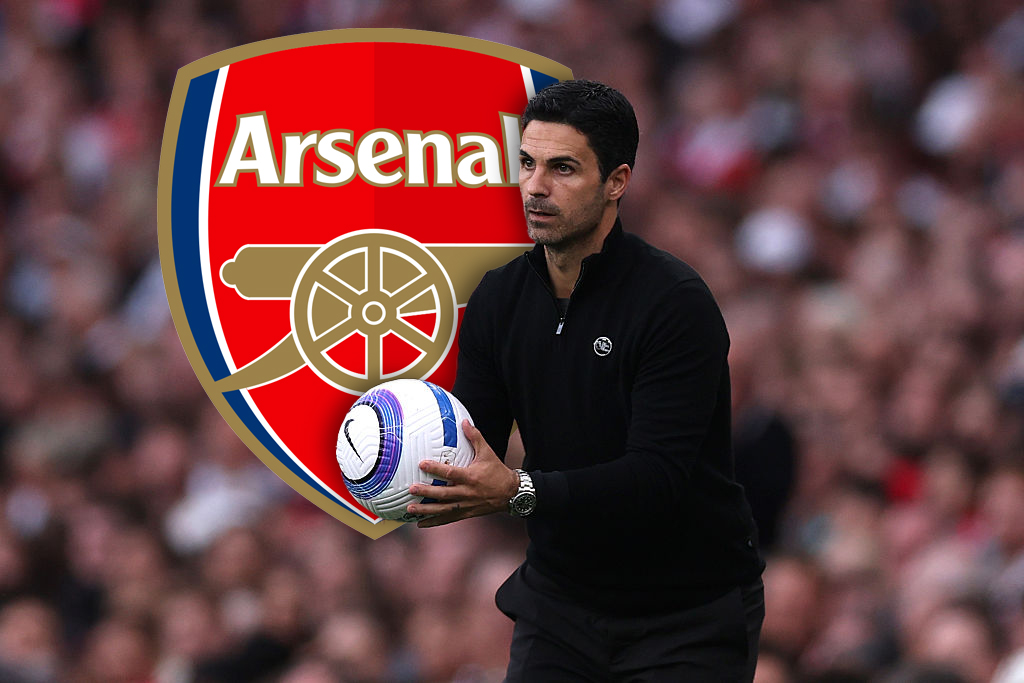All he needs is love? A brief history of Jose Mourinho's relationship with the media
Paul Wilkes doesn't think the Chelsea boss is doing himself too many favours this season, but the Portuguese has battled among the mic men and headline writers plenty before...
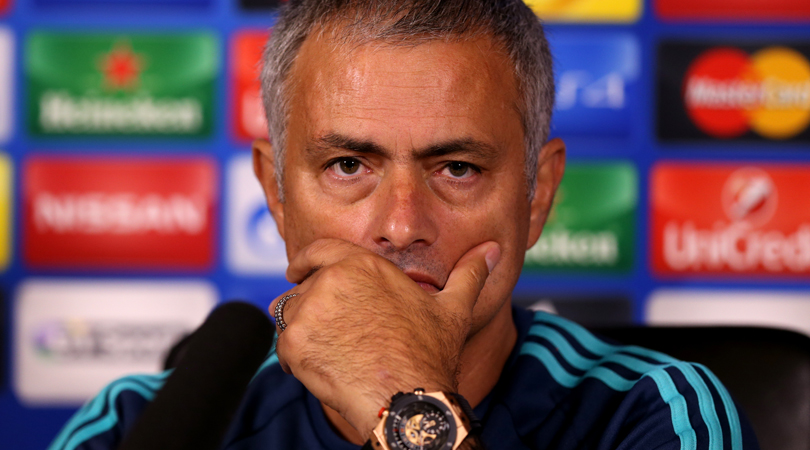
When Jose Mourinho returned to the Premier League in 2013, fans and media alike were excited by the second coming of one of the game's most colourful characters. The self-proclaimed Special One had been sorely missed, and with the retirement of Sir Alex Ferguson, it was felt an ultra-strong personality would illuminate England's top tier once again.
Mourinho was constantly hankering for West London reconciliation in his final campaign at Real Madrid, and the Bernabéu supporters were generally happy for his wish to be granted.
"I know I am loved in England, I am loved by the fans and the media," boasted Mourinho after Los Blancos lost to Borussia Dortmund in the semi-finals of the Champions League. "They treat me fairly. They give me credit when it is due and criticise when it is deserved. I am loved by some clubs, especially one. In Spain it is different, some people hate me, many of you in this room."
Love and hate
In Italy, he made an instant positive impression by speaking Italian in his first press conference, although he quickly became embroiled in several rows with managers, journalists and TV personalities
The six-year gap between tenures appeared to have made Mourinho forget the awkward circumstances in which his last year played out at Stamford Bridge, when the Portuguese coach unsurprisingly earned criticism when results began to dwindle. The deterioration of relationships behind the scenes, along with poor displays on the pitch, ultimately led to his departure at the start of the 2007/08 season.
His time away from London also had similar results, despite Mourinho's own slant on his legacy with the world's media. He has faced adversity in all the countries he has managed, including arguments with some of the major news outlets.
In Italy, he made an instant positive impression by speaking Italian in his first press conference, although he quickly became embroiled in several rows with managers, journalists and TV personalities, as well as making some controversial comments on the state of the Italian game.
Get FourFourTwo Newsletter
The best features, fun and footballing quizzes, straight to your inbox every week.
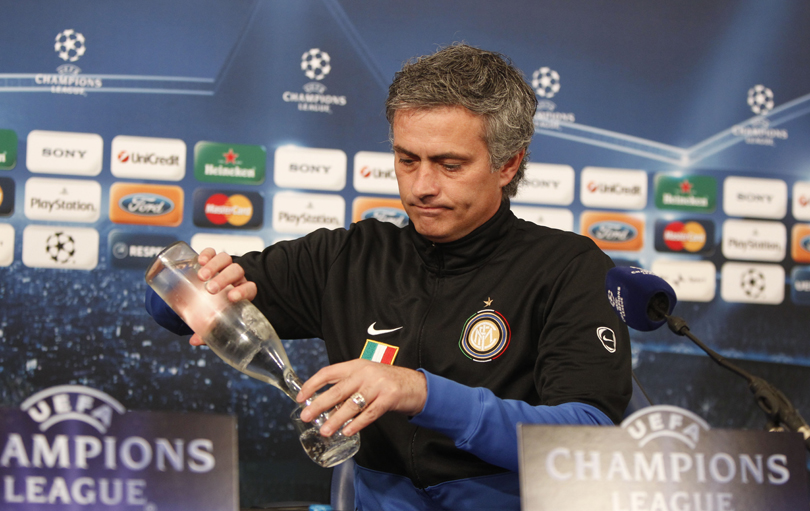
His attacks on a number of his rival coaches were unprecedented, as he accused his opposite numbers of "intellectual prostitution" and "manipulation of public opinion," before emphasising that the likes of Roma, Juventus and Milan would all finish with no silverware.
Campaign crusader
I know that lots of people are happy that finally after so many years they find me in a situation like this so fair play, enjoy
At Madrid, it was a familiar story. He frequently clashed with reporters as he cut back access to players and training. It wasn't just the Barcelona-supporting publications either, with Madrid-based Marca changing their stance on Mourinho when it became apparent that Los Blancos President Florentino Perez wanted rid.
His assistant Aitor Karanka was regularly sent out to field questions due to the strained relations between Mourinho and the media. This decision before the Clasico was treated with disdain, as over half the awaiting journalists left the press room in disgust.
"He [Mourinho] doesn't want his words blown out of proportion and he doesn't want to be the one who raises the temperature ahead of the match," confessed the now-Middlesbrough manager. When the tension increased and the dressing room began to divide, there were few people willing to fight Jose's corner.
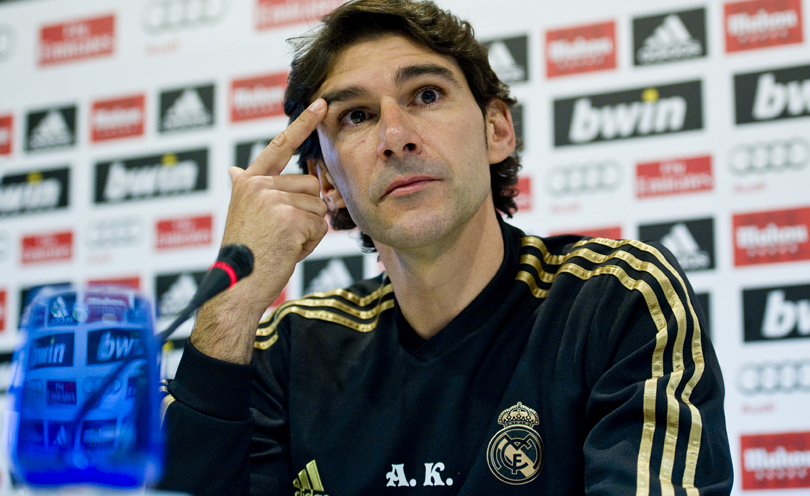
Back in England, Mourinho said in December: "There is a campaign against Chelsea. I don't know why there is this campaign and I do not care." His team had won 14 out of 18 matches before the 1-1 draw with Southampton that prompted the outburst, including credible stalemates at both Manchester City and United, suffering defeat only once.
His side were well on the way to becoming champions of England at the time, and the subsequent reaction was far from the severe response he would receive currently. Now he's giving off an image that his universe is falling apart around him. "I know that lots of people are happy that finally after so many years they find me in a situation like this so fair play, enjoy," the Portuguese sniped after defeat to Everton last weekend.
Measured Mou
When Mourinho's plan works to perfection, he's a funny, clever and intellectual man who makes for brilliant soundbites and headlines for the national newspapers
There's a widely held belief that the Chelsea boss meticulously plans every sentence that leaves his mouth, and that he always has an ulterior motive that either attracts or detracts attention. That may be the case when his players and team are responding to his methods in the right manner, as he can plot a series of explosive rants while his team win with minimum pressure and collect medals. When Mourinho's plan works to perfection, he's a funny, clever and intellectual man who makes for brilliant soundbites and headlines for the national newspapers. However, the line between ingenious and tiresome is thin.
A run of poor performances often sees the 52-year-old's whole demeanour and attitude change completely. It's been evident as his side have collected just four points from their opening five league matches, which has left Mourinho with an altogether different perspective at Stamford Bridge.
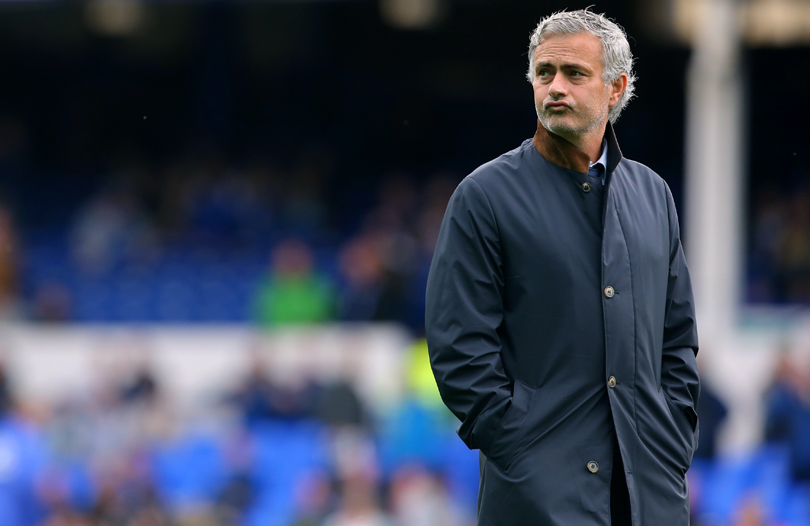
At the start of the season, the Portuguese declared his disagreements with Roman Abramovich to be a thing of the past, before publicly falling out with his own medical staff and Roberto Martinez.
At Goodison Park his press conference was brief and prickly, as he responded to questions like a man who would fight anyone who dared challenge him in the room. Reports emerged of an altercation between him and Toffees manager Martinez just minutes afterwards.
Fergie's lead
Mourinho might be one of the best coaches of all time, but even he needs defending when the tide turns against him
Mourinho, of course, isn't the first coach to be a little spiky with reporters (this week he declared one question "stupid" when referencing his third-year indiscretions). Alex Ferguson was notoriously difficult at Manchester United, regularly banning journalists from press conferences. However, the Scot's longevity and control at the club meant that when correspondents looked to gather intelligence from rogue informants they were often left with little but propaganda.
When Mourinho's Madrid beat the Red Devils at Old Trafford in a 2012/13 Champions League match which infamously saw Nani sent off, one United player walked through the mixed zone and confessed: "We've been told not to talk." Under Ferguson, they closed ranks and garnered their us-against-the-world mentality, something that Mourinho has done well in triumph but struggled to do in moments of distress.
It's ultimately owners, chairman and sporting directors who decide the future of managers, although dissenting supporters and negativity within the media can certainly influence the final outcome. Mourinho might be one of the best coaches of all time, but even he needs defending when the tide turns against him.
RECOMMENDED Mourinho vs Wenger: a decade of digs, gibes and japes
